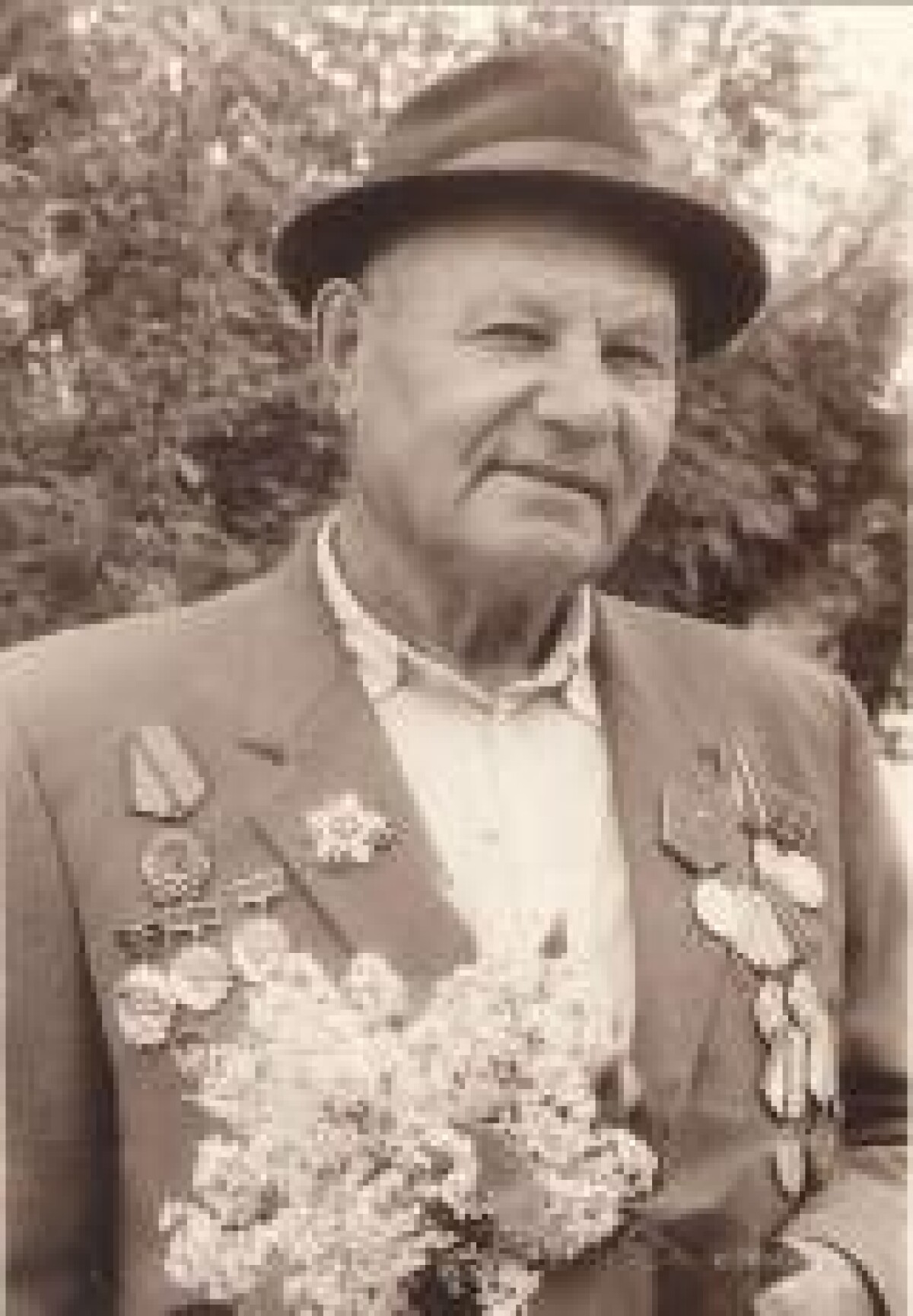
The last shots of artillery ceased on the fronts of the Great Patriotic War seventy years ago. Many millions of soldiers gave their lives to protect our Motherland. These heroes fell on battlefields or died in the hell of concentration camps. None of us will forget the feat of our nation. Unimaginable difficulties were overcome by all who were affected by the war, including civilians, soldiers, officers, their mothers, wives and children...
Every year on 9 May, we lay flowers at the monument to those who died in the war.
People, who come there remember, what the price of our happiness and peaceful world was. Red carnations against the background of marble look like drops of blood shed during the war for the freedom of our land. Most people pronounce the words: "Thank you, the soldier".
We learn the history of the Great Patriotic War in history lessons where teacher tells us about military operations, movement of the army and number of victims. But we should remember that it also includes destinies of people, their emotions and real concerns.
At school, our headmistress Nadezhda Gaydukova told us much about the war. Her father Andrey Gaydukov fought on the fronts of the war. He used to come to our school and tell about it.
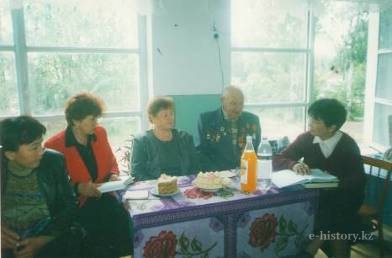
Andrey Gaydukov was born on 13 September 1918 in the village of Archadinskaya, Volgograd region. At the age of fourteen he started working as greaser at the railway. Then he served in the army. When the time of demobilisation came he received call-up paper. Andrey Gaydukov was sent to the Second Belarussian Front and became a helper of the commander of the platoon. He was twice wounded in his knee and elbow. He went through the war and reached the Reichstag. The veteran was awarded orders and medals. After the war, he couldn’t sleep at nights. He dreamt the battles. However, the emotional scars healed over the time.
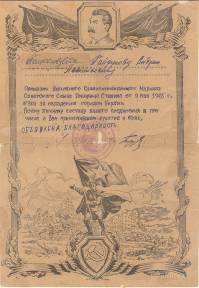
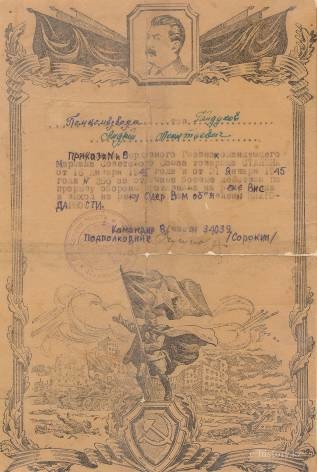
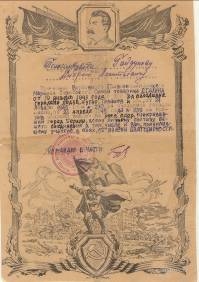
In 1970 together with his family Andrey Gaydukov moved from Uzbekistan to Kazakhstan and settled in the village of Kirovskiy (now Asykata). Many years he worked as leading mechanical for a cotton processing factory. Andrey Gaydukov and his wife Zinaida had long and happy life. They brought up six children, nine grandchildren and six great-grandchildren.
From the memoirs of Andrey Gaydukov: "After the war, I was returning to my native village. Once I came to the house of my relatives to spend there the night. They opened the door and invited to the house with the words: "Come in, old man!". He was 27 years old. With grey hair, beard and skinny he looked like a stranger.
The veteran also told that when soldiers and officers of the Red Army liberated German cities passing through the territory of a concentration camp they faced the traces of crimes of fascists. They saw many human bones and skulls. There were millions of shoes of various sizes from tiny sandals to shoes of the aged, clothes, toys, clumps of hair.
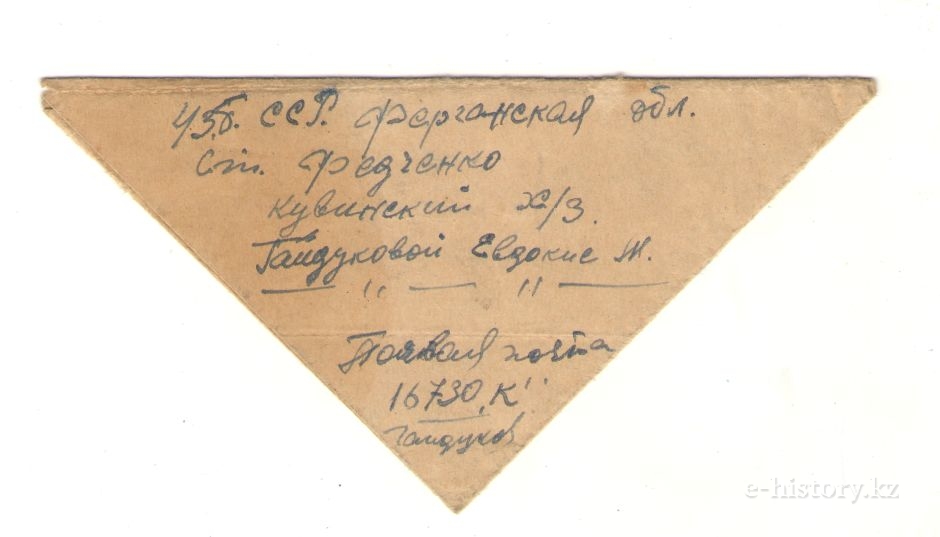
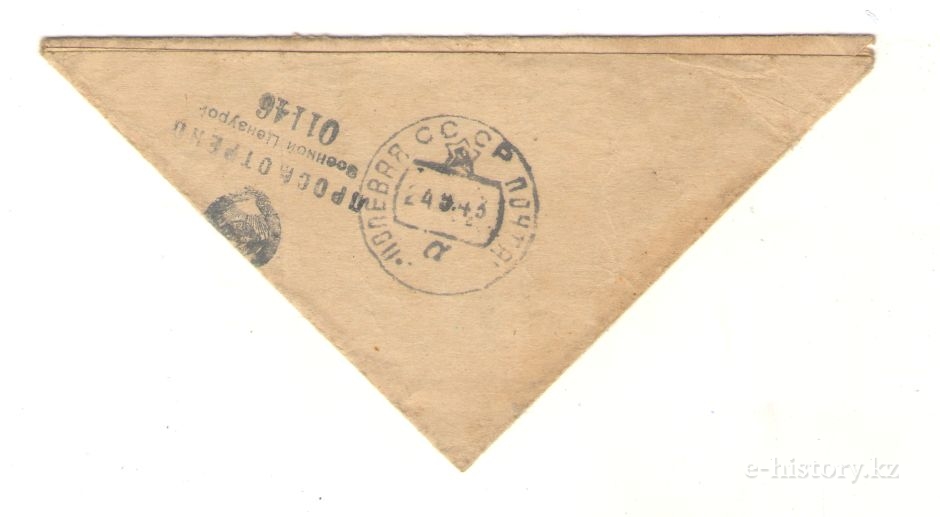
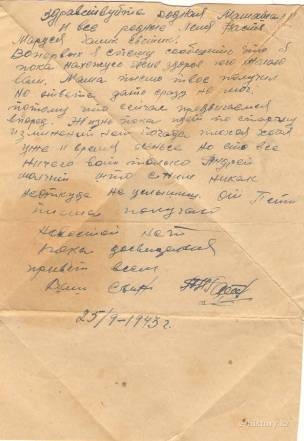
The veteran passed away on 30 January 2012. He had a long and happy life. He left us the big life to our Motherland and strong wish to live as our great-grandfathers lived. I thank them for our happy childhood! I regret that so many veterans have already passed away.
Sarsenbek Ayana,
grade 5 student of the School-Gymnasium "Zhenis",
the village of Asykata, South-Kazakhstan region
You can participate in our photo-project "The story of one photo" and we will publish your story.
